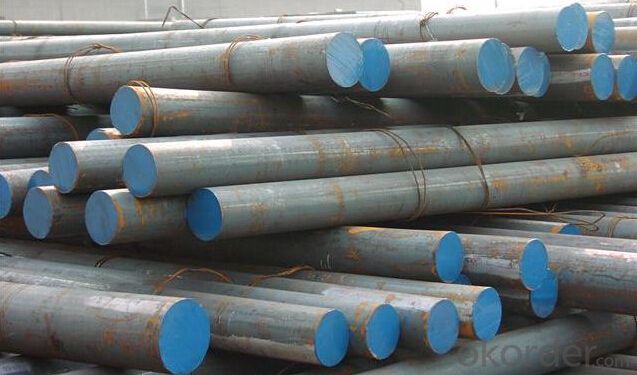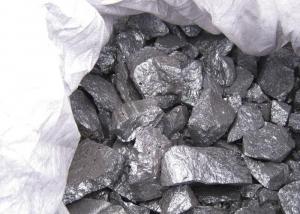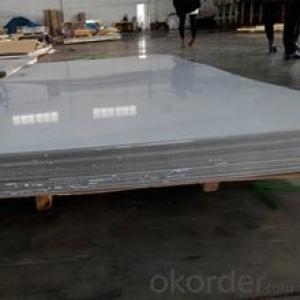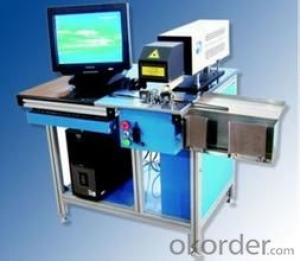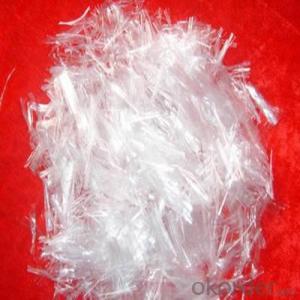JIN SUJ2 Bearing Steel of CNBM High Quality
- Loading Port:
- Tianjin
- Payment Terms:
- TT OR LC
- Min Order Qty:
- 3 m.t.
- Supply Capability:
- 100000 m.t./month
OKorder Service Pledge
OKorder Financial Service
You Might Also Like
Specification
Product Description:
ISO9001 certified
Flexible MOQ
Prompt delivery stock within 7days
MTC DIN10204
Specifications of Bearing Steel Round Bar
Grade | AISI 52100, ASTM E52100, DIN 1.3505,JIS SUJ2, GCr15 |
| Length: 2000-13000mm or as required |
Shape | Round Bar |
Type | Alloy Steel Bar |
Delivery Condition | Black Surface |
Material | Bearing Steel |
Technique | Hot Rolled |
Usage and Applications of Bearing Steel Round Bar
SAE 52100 Price is used in gauges and measuring tools, mandrels, cold rolls and flanging rolls, wood and paper processing tools, slitting blades, ball bearings and shear knives.
First the famous 1C-1.5Cr steel from which the majority of bearings are made. Its structure is apparently well-understood and the focus is on purity in order to avoid inclusions which initiate fatigue during rolling contact. Then there is the M50 steel and its variants, from which bearings which serve at slightly higher temperatures in aeroengines are manufactured, based on secondary-hardened martensite.
Tapered roller bearing are generally used to support combined load mainly consisting of radial load. Their cups are separable for easy assembling ,During mounting and using, radial clearance and axial clearance can be adjusted and preloaded mounting can be made.
Packaging & Delivery of Bearing Steel Round Bar
Packaging Detail: ASTM 52100 Steel in seaworthy packing or on customer request; Packed in bundles with standard export sea-worthy package or as customer require
Delivery Detail: 45 days after confirmed
Trade terms: FOB, CFR, CIF ou as customer's required
MOQ: 25 tons or at customer's demands. If the quantity is good, the price will be better.
Processing of Bearing Steel Round Bar
The processing of Bearing Steel Round Bar is hot rolled (strictly control sulphur, phosphorus and non-metallic inclusions content and distribution)
All products' chemical composition and specification can be design according to customers' requirement.
Note of Bearing Steel Round Bar
1. According to national standard (GB) for our products, if not, supply according to national standards (GB) or agreement.
2. We can not only provide electric furnace +LF+VD and electros lag re-melting (ESR) steel forging materials, but also forging products of piece, bar, etc.
3. Our company is equipped with roll equipment and can provide our customers with roll billets or finished.
4. Please send us your detailed specifications when inquire. We will reply to you ASAP.
5. Certificate of quality is issued in English, in addition the normal terms, production process, the mechanical property (yield strength, tensile strength, elongation and hardness. forged ratio, UT test result, Grain size, heat treatment methods and the sample of is shown on the certificate
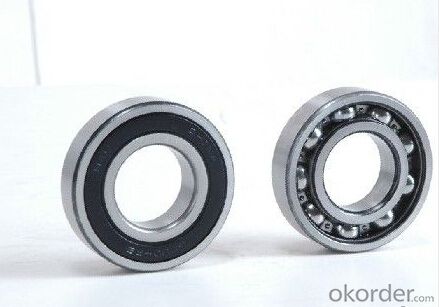
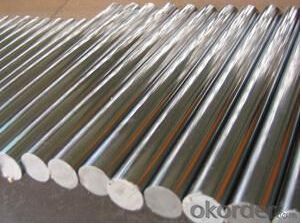
- Q: What is the impact of manganese in special steel alloys?
- The presence of manganese in special steel alloys is crucial as it greatly affects their properties and performance. These alloys, also referred to as high-strength or low-alloy steels, are specifically designed to possess improved mechanical properties, including increased strength, durability, and resistance to wear and corrosion. In order to achieve these desired characteristics, manganese, along with other alloying elements such as nickel, chromium, and molybdenum, is incorporated into the steel. One of the major impacts of manganese in special steel alloys lies in its capacity to enhance the hardenability of the steel. During the solidification and cooling process, manganese promotes the formation of fine-grained structures, which ultimately leads to improved strength and toughness. This particular property is of utmost importance in applications where the steel needs to endure heavy loads, shocks, or extreme temperatures. Moreover, manganese aids in reducing the brittleness of the steel and improving its weldability. By forming a solid solution with iron, it prevents the formation of detrimental iron sulfides, which can cause brittleness and hinder the steel's weldability. Consequently, manganese becomes an essential element in steels utilized in various industries such as fabrication, construction, and automotive, where welding is a common practice. In addition, manganese contributes to the steel's resistance against corrosion and oxidation. It creates a protective oxide layer on the surface of the steel, effectively preventing the intrusion of oxygen and moisture. This particular property proves to be highly advantageous in industries where the steel is exposed to harsh environments or corrosive substances, such as marine applications, chemical processing plants, or oil and gas refineries. Furthermore, manganese enhances the hardenability and wear resistance of the steel, making it suitable for the production of tools, machinery parts, and cutting edges. It heightens the steel's ability to undergo heat treatment, thus enabling the attainment of desired hardness and strength through processes like quenching and tempering. In conclusion, the inclusion of manganese in special steel alloys significantly enhances their hardenability, weldability, toughness, corrosion resistance, and wear resistance. Its addition enables the production of high-strength and durable materials capable of withstanding demanding applications and environments.
- Q: How does special steel contribute to the energy aftermarket industry?
- The energy aftermarket industry heavily relies on special steel for the production and maintenance of various energy equipment and infrastructure. This type of steel is crucial as it provides durable and high-quality materials. One important application of special steel is in the manufacturing of turbine components like blades, rotors, and casings. These components are essential for power generation, especially in thermal, hydro, and wind energy systems. Special steel possesses exceptional strength, corrosion resistance, and high-temperature stability, ensuring the efficient and reliable operation of turbines even in harsh environments. Moreover, special steel plays a vital role in the construction and upkeep of oil and gas pipelines. These pipelines are responsible for transporting energy resources over long distances and require materials that can withstand extreme pressures, temperatures, and corrosive environments. Special steel grades with enhanced mechanical properties and corrosion resistance are utilized to maintain the integrity and safety of these pipelines, ultimately improving the efficiency and reliability of the energy aftermarket industry. Furthermore, special steel is used in the production of storage tanks, heat exchangers, and various other components employed in the oil, gas, and renewable energy sectors. These components are crucial for storing and processing energy resources and necessitate materials that can endure high pressures, temperature changes, and aggressive chemicals. Special steel grades provide the necessary mechanical properties and corrosion resistance, enabling safe and efficient energy storage and processing. Apart from its material properties, special steel also enables advanced manufacturing techniques like precision machining and welding. These techniques are crucial for producing complex energy equipment and components, ensuring high accuracy, reliability, and efficiency in the production process. This, in turn, leads to high-quality end products that meet the demanding requirements of the energy aftermarket industry. Overall, special steel significantly contributes to the energy aftermarket industry by providing materials with exceptional strength, corrosion resistance, and high-temperature stability. Its utilization in the manufacturing and maintenance of energy equipment and infrastructure enhances efficiency, reliability, and safety, ultimately supporting the growth and sustainability of the industry.
- Q: How is special steel used in the telecommunications supply chain?
- Special steel is used in the telecommunications supply chain for a variety of applications. It is commonly used in the manufacturing of telecommunication towers, antennas, and satellite dishes due to its high strength and durability. Special steel is also utilized in the production of transmission lines, cables, and connectors, where its corrosion resistance and electrical conductivity properties are essential. Additionally, special steel is employed in the fabrication of equipment racks, cabinets, and enclosures, providing a sturdy and secure housing for telecommunication devices. Overall, special steel plays a crucial role in ensuring the reliability and performance of telecommunications infrastructure.
- Q: Can special steel be used for making electronics components?
- Yes, special steel can be used for making electronics components. Special steel, such as stainless steel, can provide excellent corrosion resistance, durability, and electrical conductivity, making it suitable for various applications in electronics manufacturing.
- Q: What is the process of manufacturing special steel?
- The process of manufacturing special steel involves several steps. Firstly, raw materials such as iron ore, coal, and limestone are gathered and processed to create molten iron in a blast furnace. Next, impurities like carbon, sulfur, and phosphorus are removed through various refining techniques. Once the desired composition is achieved, the molten iron is transferred to a steelmaking furnace, where alloying elements like chromium, nickel, or manganese are added to impart specific properties. The mixture is then refined further to remove any remaining impurities and to adjust the temperature and composition. After refining, the molten steel is cast into various shapes such as blooms, billets, or slabs, depending on the desired end product. These primary forms are then subjected to hot rolling, forging, or extrusion processes to shape them into the desired final products, such as bars, plates, or wires. Finally, the manufactured steel undergoes heat treatment processes like annealing, quenching, or tempering to enhance its strength, hardness, and other mechanical properties. It is also subjected to quality control measures to ensure it meets the required specifications. Overall, the process of manufacturing special steel involves a combination of raw material preparation, refining, casting, shaping, heat treating, and quality control steps to produce steel with specific properties tailored to meet diverse industrial needs.
- Q: What are the different renewable energy grades of special steel?
- There are several grades of special steel that are commonly used in the renewable energy industry. These grades are specifically designed to withstand the harsh conditions and requirements of renewable energy applications. One of the most common grades of special steel used in renewable energy is stainless steel. Stainless steel is known for its corrosion resistance properties, which make it ideal for offshore wind turbines or solar panel frames that are exposed to moisture and saltwater. It is also used in geothermal power plants, where high temperatures and corrosive environments are present. Another grade of special steel used in renewable energy is high-strength low-alloy (HSLA) steel. HSLA steel has a higher strength-to-weight ratio, making it suitable for applications that require lightweight structures with high strength, such as wind turbine towers or support structures for solar panels. Furthermore, there is advanced high-strength steel (AHSS) that is commonly used in the automotive industry but can also be utilized in renewable energy applications. AHSS offers excellent strength, durability, and impact resistance, making it suitable for components like blades or gears in wind turbines. Additionally, there is a grade of steel called weathering steel, which is often used in renewable energy applications that are exposed to outdoor elements. Weathering steel forms a protective layer of rust, which prevents further corrosion and eliminates the need for additional coatings. It is commonly used in solar panel support structures, transmission towers, or other outdoor equipment. Overall, the selection of the appropriate grade of special steel for a specific renewable energy application depends on factors such as the type of renewable energy source, the environment in which it will be installed, and the specific requirements of the project.
- Q: How does special steel contribute to the manufacturing of consumer goods?
- Consumer goods manufacturing greatly relies on special steel to enhance the durability, strength, and performance of various products. This type of steel is specifically engineered with unique properties and alloys to meet the demanding standards of the industry. One way in which special steel significantly contributes to consumer goods manufacturing is through its exceptional strength and durability. It forms a solid foundation for products that need to endure heavy use, such as kitchen appliances, power tools, and automotive components. The strength of special steel guarantees that these products can withstand daily wear and tear, resulting in longer lifespans and reduced maintenance costs for consumers. Additionally, the corrosion resistance properties of special steel make it an ideal material for consumer goods exposed to harsh environments or moisture. This is particularly crucial for products like kitchen utensils, cutlery, and bathroom fixtures, as they frequently come into contact with water or corrosive substances. By incorporating special steel, manufacturers can ensure that their products remain free from rust and maintain their aesthetic appeal over time. Furthermore, special steel offers enhanced performance capabilities. For example, it can be utilized in the manufacturing of consumer goods requiring high heat resistance, such as cooking appliances and automotive engine components. Special steel's ability to withstand extreme temperatures without deforming or losing its properties makes it an essential material for these applications. Moreover, the versatility of special steel allows it to be customized to meet specific consumer needs. Manufacturers have a wide range of special steel alloys with varying characteristics to choose from, enabling them to optimize the performance of their products. This flexibility enables the production of personalized consumer goods that meet specific requirements, whether it involves lightweight materials for portable electronics or impact-resistant components for sporting equipment. Overall, special steel plays a vital role in consumer goods manufacturing by providing strength, durability, corrosion resistance, and enhanced performance. Its unique properties contribute to the production of high-quality products that can withstand heavy use, offer extended lifespans, and ensure customer satisfaction.
- Q: What are the thermal conductivity properties of special steel?
- Special steels, also known as alloy steels, exhibit varying thermal conductivity properties depending on their composition and specific heat treatment. The thermal conductivity of special steel generally ranges from 10 to 50 W/mK. The thermal conductivity of steel is primarily influenced by its carbon content, alloying elements, and microstructure. Carbon acts as a thermal conductor in steel, increasing its thermal conductivity. However, alloying elements such as chromium, nickel, and molybdenum can reduce the thermal conductivity of steel due to their lower thermal conductivity compared to iron. Additionally, the microstructure of special steel plays a crucial role in determining its thermal conductivity. Heat treatments such as quenching and tempering can alter the microstructure, affecting the thermal conductivity of the steel. For example, steels with a higher carbon content and a martensitic microstructure tend to have higher thermal conductivity compared to steels with lower carbon content and a ferritic or pearlitic microstructure. It is important to note that the thermal conductivity of special steel can also be influenced by other factors such as impurities, grain size, and the presence of defects. These factors can either enhance or reduce the thermal conductivity. In summary, the thermal conductivity properties of special steel can vary depending on its composition, heat treatment, and microstructure. Therefore, it is essential to consider these factors when evaluating the thermal conductivity of special steel for specific applications.
- Q: How does special steel contribute to improving product safety?
- Special steel contributes to improving product safety in several ways. Firstly, special steel is known for its high strength and durability, making it ideal for manufacturing components that need to withstand extreme conditions or heavy loads. This ensures that products made with special steel are less likely to fail or break, reducing the risk of accidents or injuries. Secondly, special steel can be engineered to have specific properties such as corrosion resistance, fire resistance, or impact resistance. By incorporating these properties into the design and production of products, special steel enhances their safety features. For example, in the automotive industry, special steel is used to manufacture reinforced frames and safety components, providing better protection to passengers in case of collisions. Additionally, special steel is often used in critical applications where reliability and precision are paramount, such as medical equipment, aerospace components, or industrial machinery. The high performance and consistency of special steel ensure that these products function as intended, minimizing the chances of malfunctions or failures that could jeopardize safety. Overall, the use of special steel in various industries contributes to improving product safety by enhancing strength, durability, resistance to external factors, and reliability.
- Q: How does special steel perform in terms of wear resistance in abrasive environments?
- Special steel is known for its exceptional wear resistance in abrasive environments. The unique composition and heat treatment processes used in the production of special steel result in a higher hardness level compared to standard steels. This increased hardness makes special steel highly resistant to wear caused by abrasive particles or surfaces. In abrasive environments where friction and contact with hard materials are prevalent, special steel exhibits excellent performance. It can withstand the erosive effects of abrasive particles, such as sand, rocks, or metal fragments, without significant wear or damage. This durability makes special steel an ideal choice for various applications, including mining equipment, cutting tools, industrial machinery, and automotive components. Moreover, the wear resistance of special steel is not only limited to its surface but also extends throughout its structure. This means that even if the surface of the steel is scratched or abraded, the underlying material remains highly resistant to wear. This characteristic ensures a prolonged lifespan of components made from special steel, reducing maintenance costs and downtime. Furthermore, special steel can maintain its wear resistance even under high temperatures. This property is particularly advantageous in abrasive environments where friction-induced heat can accelerate wear. The ability of special steel to retain its hardness and wear resistance at elevated temperatures ensures its effectiveness in demanding applications like high-speed machining or hot forging. Overall, special steel outperforms standard steels in terms of wear resistance in abrasive environments. Its superior hardness, structural integrity, and temperature resistance make it an excellent choice for applications where durability and longevity are essential.
Send your message to us
JIN SUJ2 Bearing Steel of CNBM High Quality
- Loading Port:
- Tianjin
- Payment Terms:
- TT OR LC
- Min Order Qty:
- 3 m.t.
- Supply Capability:
- 100000 m.t./month
OKorder Service Pledge
OKorder Financial Service
Similar products
Hot products
Hot Searches
Related keywords


